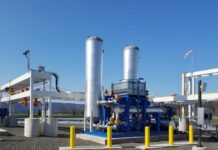The Covid-19 pandemic has pushed industries to innovate like never before. Companies that were slow to adopt automation technologies in their business processes are now recognizing these as a way to cut costs and resources and have begun to revamp their operations.
“Before this pandemic, the majority of the organizations had a focus on throughput. With a singular focus on increasing the speed of production, automation was used only as a tool. Now, companies have woken up to the importance of flexibility as well as monitoring and optimizing their operations remotely,” says Lokesh Kaushal, regional segment leader – Packaging Machinery, Asia Pacific, Rockwell Automation.

Rockwell Automation utilizes the intelligence of machines in expanding what is humanly possible today. Headquartered in Milwaukee in US, Rockwell employs more than 23,000 employees in more than 80 countries across the world including India.
Improving productivity in the automation lifecycle
According to Kaushal, Rockwell’s solutions include a complete range of Programmable Logic Controller (PLC), Human-Machine Interface (HMI) hardware and software, remote access capabilities, and Manufacturing Execution System (MES) to improve compliance for various industry segments including food, pharma and packaging. “In particular, Rockwell’s bucket of solutions for food and pharma industries include solutions for controlling processes, managing process batches, robotics, kinematics, as well as serialization to avoid counterfeiting.”
Kaushal states, “Manufacturers are now thinking of adapting existing lines to new requirements. They have to overcome the challenge of deploying people safely and ensuring product reliability, but they also need to repurpose or retool their existing lines. Automation can deliver this along with the deployment of new technologies like robotics.”
Kaushal explains that these technologies allow changeover for different products and formats with the push of a button and offers the ability to manufacture a variety of product on a single line. “I believe this is the right time for various organizations to proactively consider the deployment of automation technologies, to decrease their dependency and be prepared for the black swan incidences like this,” he urges.
Digital transformation
Rockwell understands the need for operations to continue, and therefore during these trying times, the company is committed to offering their support to maximize productivity and minimize risk. Rockwell is offering comprehensive solutions for digital transformation and virtual collaboration. Kaushal explains, “In the wake of digital transformation, we are enabling our customers as well. In today’s time, when you can’t travel and offer in-field support, we are enabling our customers to remotely collaborate and give instructions to people outside as well as people in front of the machines.”
“We are offering complimentary access to our online technical support until 30 June to help operations running during a difficult time. Until 30 June, customers can access our global engineering experts who can assist from one of our global remote support centers.”
Automation for business continuity
In a situation like the coronavirus crisis, automation and robotics could reduce dependence on human labor and increase productivity, preventing the chances of future plant shutdowns. Speaking on the industry readiness, Kaushal says, “The cost is the question when we look at the acquisition cost. When we look at the overall benefits such as downtime reduction, productivity improvements as well as insights to our operations, the cost balances out. I strongly feel that organizations need to take proactive steps to invest in these strategies now to establish business continuity in the long run.”
Technologies for social distancing and hygiene
Kaushal explains how technology can transform the workplace, “Technologies like real-time location system (RTLS) using wireless tags are useful for operators to maintain a required distance from each other. We can also route people, and rather than isolating the whole plant, only those equipment and people can be isolated and sanitized that they came actually in contact with. This way, we can keep businesses running as usual.”
Impact of Covid-19 on Rockwell
Due to the pandemic this is not going to be a great year for Rockwell Automation like many other companies. However, Kaushal is hopeful that once the economy starts to recover, there will be a pressure on performance and business will resume. “Covid-19 has emphasized the importance of automation, robotics and flexibility to businesses. Once the economy bounces back, things will normalize and we will be on a stronger path to recovery,” he believes.
Rockwell is able to maintain business continuity. “At this moment, we are ensuring that our customers are being served for their needs and we are focusing more on our long-term strategy. We are in the right position and our technologies are aligned with the industry or the manufacturing sector,” he concludes.









